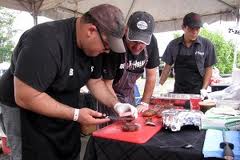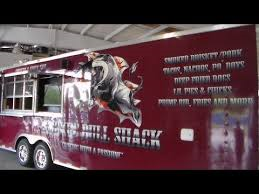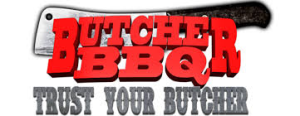At M&R Specialty Trailers and Trucks, we’re big fans of BBQ. In fact, many of our customers have gone on to win regional and national competitions with our line-up of New South Smokers and Grills. Whether you’ve got plans to participate in a community BBQ or hit the regional circuit, I asked multiple top-ranking BBQ teams for advice you can use. Whether it’s your first time or want to gain an advantage over the competition, I hope that this little collection will improve your grill game.
Suffice it to say it’s a heck of an atmosphere to survive and win in for die-hard professionals, let alone those just getting into the circuit. Long days of smoking multiple proteins, each with recipes that need be almost perfected through years of home trial and error before one feels they stand the chance.

-
- Slap Yo Daddy BBQ starts us off with something now true bbq-er should ever forget: “BBQ is Ready when it’s Ready so Don’t Hurry.” Low and slow, one has a whole day if not more during these competitions, use it wisely to get your meat prepped and on the heat quick so it can cook and evolve for as long as possible. That way one can take their Bark and Flavor development to the extreme.
- Allowing time follows through with M&R’s own customer Grilling Gaines Catering, who mentions to “always leave yourself grace time for problems that may arise… be prepared for anything and have a game plan.”


- Another loyal M&R customer, Smokin’ Bull Shack says “The one thing I could suggest is having the right equipment… [our] smoker allows us to cook 25-30 pork butts, maintaining a consistent temperature is an ease, and you can control the amount of smoke you want to add to your meat.” It doesn’t need to be a top-of-the-line, fancy, tech-savvy monster, as witness by the many well-placed teams who’ve built theirs out of who knows how many different bases. Oil drums, old trucks, giant monsters made to look like cows and pork, the possibilities are endless; the only important thing is having one that WORKS, is reliable, and knowing it, all its hot and cold spots, kinks, and being able to utilize it its best ability. Taking notes isn’t a bad idea, which reminds me…
- “Take lots of notes when doing test cooks. Like time of cooking, temp, holding time… and so on.” Can help one prepare for this, getting perfection in your product is the only way to have a chance so one needs to get a set recipe and know exactly how to get back on track should issues arise. This latter quote was offered by Butcher BBQ, who also had to say on the idea of preparation:
- “Before your first contest do a complete cook in your drive way to know everything you have to take.” It’s amazing what obvious equipment one will forget to bring with them on any job, so get a list together.


- Both they and South Pork BBQ Team agree that you should “Always use the highest quality product to ensure the best possible results,” “You can’t get Prime Rib out of buying stew meat” and you won’t place in the top 5 of a Brisket showdown with B-grade product; you don’t need to go Wagyu, but keep to the right product. “Have a big budget,” as Leftcoast Q says, not just for the massive amounts of meat one usually has to prepare for but to ensure you’re not compromising on what will lead to YOUR perfect recipe, and to have leftovers in case disaster strikes (much like time).
- Do everything to make sure you reach Turn In Time. “Nothing sucks more than missing turn ins by 10 seconds or showing up 1 hour early… Do a test walk to turn ins and time it beforehand… Use a good clock, we usually set ours 2 minutes fast.” That said in the lengthy reply I got from Unknown BBQ. They make another good point, which is:
- “Never try a new recipe or technique at a contest if what you have been doing is working. I have done it a few times and it usually backfires … If you know you are turning in quality product NEVER change your recipe after getting poor scores at 1 contest… Unfortunately humans are judging our BBQ and they make mistakes… as a rule of thumb we will go three contests of poor scores in any one category before changing it.”
- Leftcoast Q also reminds us that after all that time cooking, “it’s the last few minutes before you close the box that makes all the difference.” It’s going to be all these tiny details decided in this short amount of time that leave the best impression on the judges or just one of standardness, whether the edges of the ribs are cut clean or have tiny frays, or if there’s a fresh, shiny coat of lacquer-like sauce, etc. Though one of the most important reasons is this
- “The last thing you put on your product is the first thing the judge will taste.” As revealed by Warren County Pork Choppers BBQ, whereas your earlier applied spices and sauces mellow and evolve to a low, complex note amongst the meat, any last-minute seasoning and saucing will stand out as an alpha component on the tongue. This can be used to hit those flavors you want to highlight most, or it can overpower everything you worked so hard for, so use this concept wisely or meekly to avoid disaster
- “Think like a judge as if you were judging your own product.” Another quote from Pork Choppers, this fits into the testing phase, and one may want to research to truly see through their eyes.
- At the end of the day though, “Trust Your Butcher” (Butcher BBQ) and “Try to have fun.” (Grilling Gaines) Don’t take any of this too seriously and intense, it’s going to be a long day of rubbing pork and waiting for meat to cook, and BBQ’s always been an activity of relaxation. The best competitors are often those that have a laugh and smile every chance they get, and that attitude sings through the food (and hey, it never hurts during the big competitions where the judge visits the tent for a ‘tour’).


Here’s some other guidance I’ve been taught over the years about winning BBQ competition and improving your skills.
The Basics: Preparing for the Big Day
First things first, you’ve got to know the rules. Every competition is different, and the last thing you want is to get disqualified over some technicality. Read the guidelines, understand them, and follow them to the letter.
Now, onto the meat of the matter—practice. Don’t wait until the competition day to try out a new recipe or technique. Perfect your process ahead of time. Trim your meat at home; it’ll save you time and ensure it’s done just the way you like it.
The Art of Rubs and Sauces
Keep your rubs simple. Salt, pepper, garlic powder, and paprika are your basics. Adjust based on taste and meat type—brown sugar for pork, cayenne for a bit of heat.
Sauces are personal. Serve them on the side. A tangy vinegar-based sauce goes great with pork, a sweet molasses-based sauce for chicken, and a bold, peppery sauce for brisket. Remember, don’t drown your meat in sauce; let the smoke flavor shine through.
Cooking Processes and Details
Temperature control is key. Maintain a steady temperature in your smoker. Use a good thermometer and keep your smoker vents adjusted for consistent airflow.
Wood choice matters. Oak and hickory are great for beef, apple and cherry for pork, and pecan for chicken. Don’t be afraid to mix and match to create unique flavors. Always rest your meat after cooking. This redistributes the juices and keeps it moist.
Finally, timing is everything. Start early because good BBQ takes time, and you don’t want to rush it. Constantly taste your food as you cook to ensure it’s on point. And don’t forget about presentation—a clean, well-arranged plate can make a big difference.
Thanks again to all the teams that helped me out with this article. Hopefully the new teams reading this can put your tips to use and start making things a little harder than before. And when that happens, may all your pork be tender, bark crunchy and sauces deep and shiny. Now, if you don’t mind, I have some brisket I need to check on.










